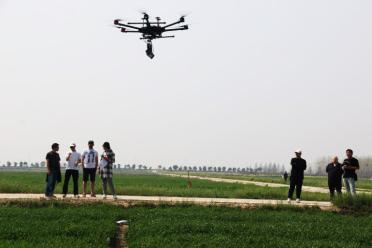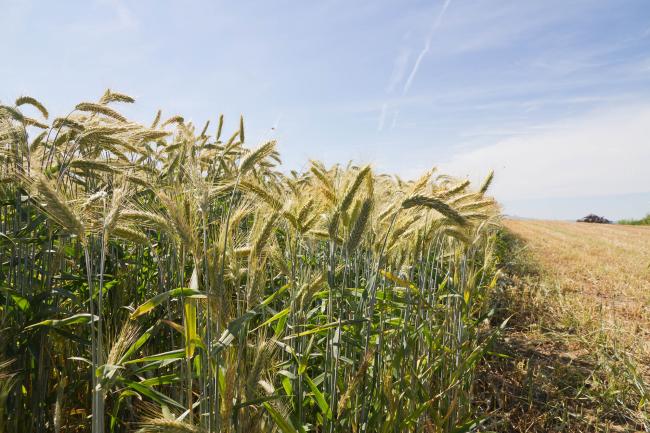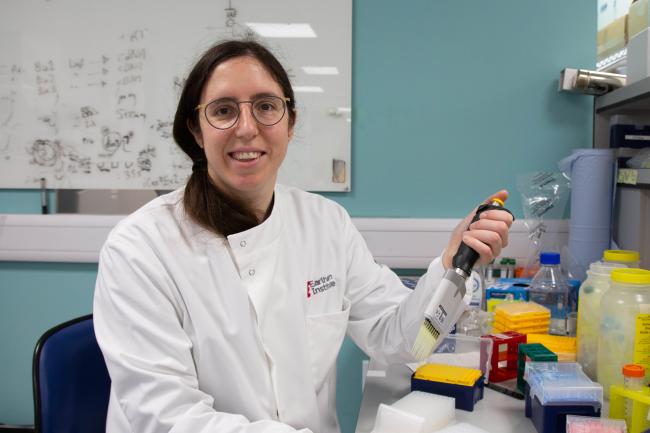
With the largest population in the world, China feeds nearly 1.4 billion people - covering 22% of the globe’s inhabitants. In order to keep up with its intense food demand, China has cultivated vast areas of crops - accounting for 7% of the world’s arable land.
A remarkable achievement but one that comes at a cost. Excessive use of fertilisers and chemical applications has resulted in a catalogue of environmental and agronomic issues such as soil compaction, acidification, pesticide residue toxicity, pest resistance, environmental pollution, and ecological imbalance. If not confronted promptly, China’s agricultural sector and its environment are at imminent risk - damaging its long-term economic growth and potentially the global economy.
Dr Ji Zhou of Earlham Institute, partnered with Prof Tao Cheng from Nanjing Agricultural University, is leading a Newton Network + project to bolster China’s long-term growth with agri-tech innovation; developing automated crop analysis based on large aerial images captured by UAVs (unmanned aerial vehicles) and fixed-wing light aircraft to identify key growth stages in wheat.
The Newton Network develops and supports new UK-China agritech partnerships to address the challenges facing modern agriculture. The Network is a part of the UK Science and Technology Facilities Council's portfolio of innovation programmes, coordinated by the Science and Technologies Facilities Council.
The project aims to enable the Agri-Food sector to optimise the timing for fertiliser and chemical application in line with crop seasons based on agricultural aerial imagery data as well as ground-based remote sensors in the field - reducing costs and stabilising yields. The agri-solution will be built upon the existing analytic platform ‘AirSurf’ and expertise in machine-learning based image analysis, led by the Zhou Group at EI, together with key intellectual contributions from NAU.
EI project lead, Dr Ji Zhou, said: “Our innovative analytic technology will help resolve real-world problems in food security and precision agriculture; initially benefiting local agricultural authorities in the Jiangsu province through local agronomic demonstration centres and cultivation experts, and native farmers. Through the ‘Field Day of Precision Crop Cultivation’, we will demonstrate our research to agricultural practitioners (e.g. growers, farmers and breeders), who require advanced technologies to monitor crop fields and gain a better understanding of fertiliser and chemical applications.
“This project will also benefit and help modernise Agri-Crop and Agri-Tech sectors in both China and the UK. In particular, for Agri-Food Research & Development in China, our work can support the establishment of a smart, sustainable and adaptable agricultural system - empowering the country’s productivity and sustainability in crop improvement and agricultural practices,” said Dr Zhou.
Long-term, the project will apply AirSurf to industrial applications to further support the Agri-Food sector; sharing invaluable expertise, knowledge and software analytic platforms in key areas of crop research including phenotyping, breeding, cultivation, agricultural practices, and Agri-Tech innovation for bread wheat.
NAU project lead Prof Tao Cheng, added: “Through this Newton Network+ project in collaboration with Dr Zhou at the Earlham Institute, the two research groups will continuously develop our strengths in precision agriculture and information technologies. We aim to introduce the latest development in computing sciences to crop growth monitoring research, based on which we will create novel approaches to reliably measure key growth stages and predict yield production for wheat. Our ultimate target is to promote Agri-Tech innovations and modernise agriculture in both China and the UK”.








